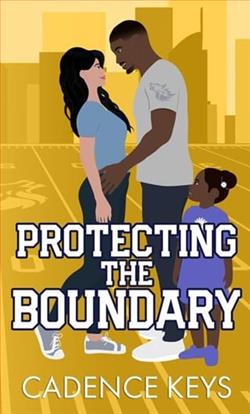Page 66 of The Vanishing Place
“It’s just…I could do with some company tonight.”
He looked straight at her, at the girl he’d known a lifetime ago, and for a moment Effie forgot how to breathe.
“I know about Charlotte,” she said. “June told me.”
Lewis didn’t move, he didn’t look away, and Effie’s heart hammered.
“I just don’t want to be alone.”
“It’s the first door on the right,” he said. “T-shirts are in the bottom drawer.”
Then he walked out with his phone already to his ear, and the ache in Effie’s stomach grew.
—
Lewis was up and gone by the time Effie opened her eyes.
She hadn’t heard him come in; she’d fallen asleep to the soft pacing of his footsteps in the hallway. They hadn’t spoken—hadn’t so much as touched—but the dent and smell of him was still in the covers next to her. Effie stretched a hand out, letting the fading warmth soak into her skin, then she reached for her phone. She unlocked it, read through the hundred messages from Blair, and typed a reply.
I wanted to message you first. No doubt it will be all over the news by tomorrow night. Even in the UK. A runaway bush girl and two bodies. The press is going to have a fucking field day. It’s not good, Blair. I messed up. I lost her.
I’m not okay.
Blair’s reply was instant.
Do you want me to fly out? I can be on a plane in twelve hours. I could do with a few good movies. Also, I secretly love plane food. Weird. I know. I’m judging myself. X
Effie let out a jolt of laughter. She actually laughed.
No. But thank you.
I’ll have my phone on and my passport packed. Super horrid photo, taken when I was hungover. No makeup AT ALL. But I’ll do it for you. X
Effie squeezed the phone tight, then stepped from Lewis’s bed, ready for the shitstorm.
—
The next twelve hours were hell. Even with a missing kid and one—maybe two—dead bodies, things took time to mobilize. It didn’t help that Christchurch was 550 kilometers away.
Charlotte—his wife—was 550 kilometers away.
Lewis made call after call, and Effie looked through the photos on her phone, over and over, searching for anything. Normally, another sole-charge officer would have been called in from Franz Josef to help secure the scene while they waited on the big guns. But the scene was in the middle of the bush, and the potential murder weapon was missing, so normal was out. Lewis had checked andthere was absolutely no precedent for this on the West Coast. Anya, like her name, was an anomaly.
But by 8 p.m., the small police station had been transformed into a bustling incident headquarters. Laptops had been set up on desks, large evidence boards had been pinned to the walls, and the place was littered with half-drunk cups of coffee and leftovers from dinner. Both Effie and Lewis had been interviewed, and she’d handed over the drawing and the notes from Tia. Now they were waiting for instructions. It was no longer Lewis’s case; that had been made clear. It was up to Detective Morrow and the real cops now.
“Arseholes,” Effie had whispered.
She sat on a plastic chair and stared at the photo of Anya on the wall. Lewis had taken it shortly after she’d turned up, her dress still bloodied and her eyes hollow. There were photos of her ankles too, the skin raw and scarred, and a picture of a badly healed scar along her forearm. From a knife, perhaps. The dress had been sent to the lab in Christchurch, but Effie didn’t hold out much hope. The blood would provide DNA, maybe, but that didn’t seem particularly useful given that the entire family lived off-grid.Like ghosts in the trees.But they had Four’s blood, and if they could get Anya’s, they might be able to find proof of Tia on the dress, drips of her sister soaked into the fabric.
“We’re heading out at 5 a.m.,” said Lewis, handing her a coffee. “The weather should have cleared by then.”
Effie turned to the window, an onslaught of rain and wind battering the glass, and tried not to think about Anya. Shivering. Wet. Alone. She closed her eyes. Or maybe she wasn’t alone. And maybe that was worse.
“We’ve both got a spot to fly out on the Eagle,” Lewis said. “Glorified spectators, I’m told. No touching.”
“How considerate of them,” she said, her voice cold, “giving a seat to the only person who knows where to go.”
“The locals have already mobilized,” said Lewis, sitting next to her. “Hanging up on journalists left, right, and center, and blocking emails. It will get out, of course, but we’re among good people. The locals are on our side. At the moment, the press is just sniffing. Shooting in the dark.”















